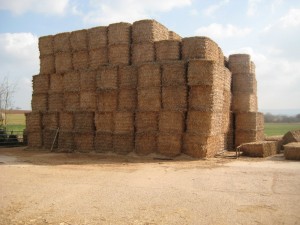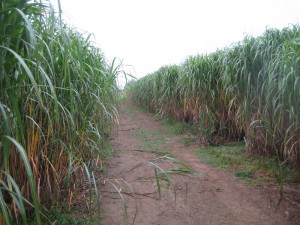RHI Sustainability Criteria – what miscanthus and straw users need to know
 Things are about to get a bit more complicated for Renewable Heat Incentive (RHI) paticipants that are using miscanthus and straw in their biomass boilers. From 5th October 2015 new sustainability guidelines will need to be met by anyone benefiting from the RHI scheme and the suppliers of the biomass fuels that are being used.
Things are about to get a bit more complicated for Renewable Heat Incentive (RHI) paticipants that are using miscanthus and straw in their biomass boilers. From 5th October 2015 new sustainability guidelines will need to be met by anyone benefiting from the RHI scheme and the suppliers of the biomass fuels that are being used.
There are around 10,000 accredited biomass installations under the non-domestic RHI. Most installations are using wood in the form of pellets, chips or logs. There are less than 500 installations that use non-woody fuels such as miscanthus and straw. Of these the vast majority are using their own fuel, produced from their own land. Some like C4E client Tredethick Farm Cottages are moving their crop 500 meters from the field to their boiler. What could be more sustainable that that you might ask? For people like this you would think that complying with sustainability criteria would be a simple exercise. Unfortunately, this is not the case.
For the woody fuels a Biomass Suppliers List (BSL) has been set up to assist suppliers and end users to meet the criteria. Suppliers need to register their fuels with the scheme whilst users need to make sure they buy their fuel from an organisation or individual registered on the scheme. Self suppliers (i.e. those sourcing wood from their own woodlands or growing their own short rotation coppice) need to register on the scheme and then simply tick a declaration box each quarter. The BSL is funded by the Department of Energy and Climate Change (DECC) but it appears that the tender they put out back in September 2013 never stated the need for non-woody fuels to be included. As a result the BSL currently doesn’t have a provision to guide miscanthus or straw producers, traders, users and self suppliers through the process.
This was a big oversight. Of course the Government might claim that the BSL covers over 95% of RHI participants but that is scant consolation for anyone falling outside the woody spectrum.
Over the last 18 months Crops for Energy has played a key role in trying to get DECC and Ofgem officials to recognise the need for this omission to be rectified. On behalf of the Energy Technologies Institute (ETI) we produced a briefing note with 10 annexes of robust supporting evidence. DECC and Ofgem suggested that they would be willing to look at endorsing other sustainability lists that are industry led (and obviously funded by the industry and affected participants). In January Crops for Energy teamed up with the Farm Energy Centre to try and achieve this. We have consulted the industry and garnered widespread support and put in a fully costed proposal to DECC. We are currently waiting to get Secretary of State Approval to roll out the list.
 Until the list is launched what do miscanthus and straw users need to do?
Until the list is launched what do miscanthus and straw users need to do?
From 5 October miscanthus and straw users must self-report against the life cycle greenhouse gas emissions (GHG) of their fuel and comply with land criteria (to ensure that the biomass has not been grown on protected land) for every consignment of fuel used. Prior to this, RHI recipients using non-woody fuels need to fill out a Fuel Measurement and Sampling (FMS) questionnaire to determine the amount of fuel used each quarter, the definition of consignments, the management of mixed consignments and the energy content of the fuel. Future RHI payments may be stopped if FMS procedures are not agreed so it’s really important that affected parties get to grips with this as soon as possible.
Draft sustainability guidance has just been released by Ofgem instructing all participants of the RHI what they need to do to comply come 5 October. This one size fits all approach is not particularly helpful. There are 5 documents and more than 150 pages of guidance. Only around 10 pages are really specific to miscanthus and straw users but you have to read the lot to make sure you’re not missing anything. Even when you read all the guidance it’s still really confusing. Unfortunately, as it currently stands affected parties have a choice to make – either to try and wade through the paperwork themselves or employ the services of a consultant to help them do this.
We’ve read the guidance, we’ve made recommendations on the flaws of the guidance, been to all the seminars and liaised closely with DECC and Ofgem. Hence, it you are in this position and really worried about which way to turn please give us a call to discuss your options.